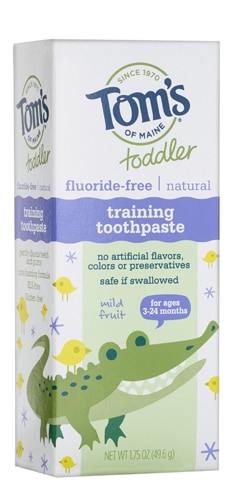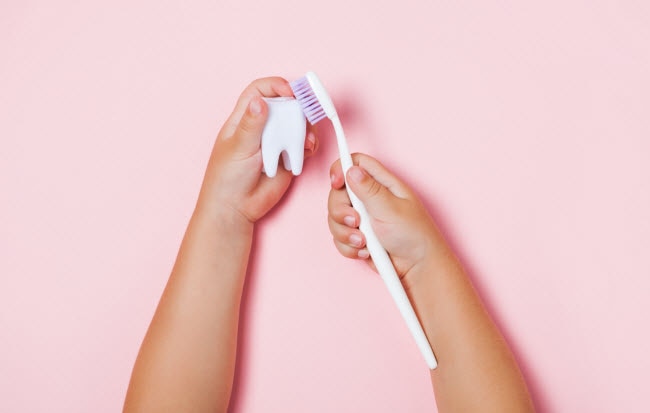The enemies of healthy teeth lurk everywhere. They are stirring up trouble in the cookies you just pulled from the jar, and dreaming their destructive dreams in the soda can you popped open an hour ago.
To fight back and win the war against these foes, your kids need to join the battle early in life, says Colin Reusch, director of health policy for the Children's Dental Health Project.
“Because of the chronic nature of dental disease, children with oral health problems tend to become adults with oral health problems,” he says.
February is National Children’s Dental Health Month, a good time to consider the oral-health risks that children face – and what parents can do to prevent such harm.
“The biggest mistake any of us can make is assuming that simply going to the dentist once or twice a year is the only thing we need to maintain good oral health,” Reusch says. “The truth is, clinical care isn't the most important factor in shaping our health.”
How oral health issues impact your child
Oral health problems can begin early in a child’s life. “In the case of tooth decay, the disease process starts at birth, as the bacteria that cause cavities can be passed from mother to child,” Reusch says.
As children grow, oral health issues can have a bigger impact on their lives.
Reusch says research has shown that children with cavities or dental pain are more likely to miss school. And on average, they have lower grade-point averages than their healthier peers.
“There's also research indicating that poor oral health can affect teenagers' mental health and social engagement, diminishing their self-confidence,” he says. That can lead to feelings of hopelessness or depression.
These issues can follow a child into adulthood. Reusch says research indicates that people with poor dental health can have trouble landing jobs, and that they often have lower lifetime earnings.
“No one should be held back from their dreams due to dental disease,” Reusch says.
Keeping kids' teeth healthy
Some basic precautions can help children maintain good oral health.
“Parents can have the greatest impact by practicing good oral health behaviors at home,” Reusch says.
Such steps begin with making sure you do not transmit bacteria to your children by avoiding sharing spoons, or cleaning off pacifiers with your mouth.
You also should limit sugar intake and the frequency of snacks and juice.
“Tooth decay is largely diet-dependent,” Reusch says. “The bacteria that make cavities need sugar to create tooth-harming acid, and they thrive when the mouth isn't given a chance to balance itself out after eating and drinking.”
Reusch says parents should limit how often kids eat carbohydrate-heavy snacks – such as pretzels or cookies -- and avoid giving young children around-the-clock access to sugar-rich drinks like juice and milk.
He says one helpful tip is to remember the phrase, “Stick to juice or milk with meals, offer water whenever.”
Also, make sure your children brush regularly, and have access to fluoridated water and toothpaste.
“Using fluoridated toothpaste -- even on baby teeth -- is important to help kids stay cavity-free,” Reusch says.
The American Academy of Pediatrics recommends that young children receive an oral health risk assessment by their doctor. For kids who have early signs of tooth decay, there are treatments that pediatric doctors can provide, like applying fluoride varnish.
“It is a safe, clear coating that gets painted on children’s teeth,” Reusch says. “Oftentimes, the physician's assistant can apply it.”
Reusch says you can visit the Children's Dental Health Project website to watch short videos packed with additional tips for keeping your kids’ choppers healthy.
“We also recommend families speak with their pediatrician and dental professional for other guidance and support,” Reusch says.




